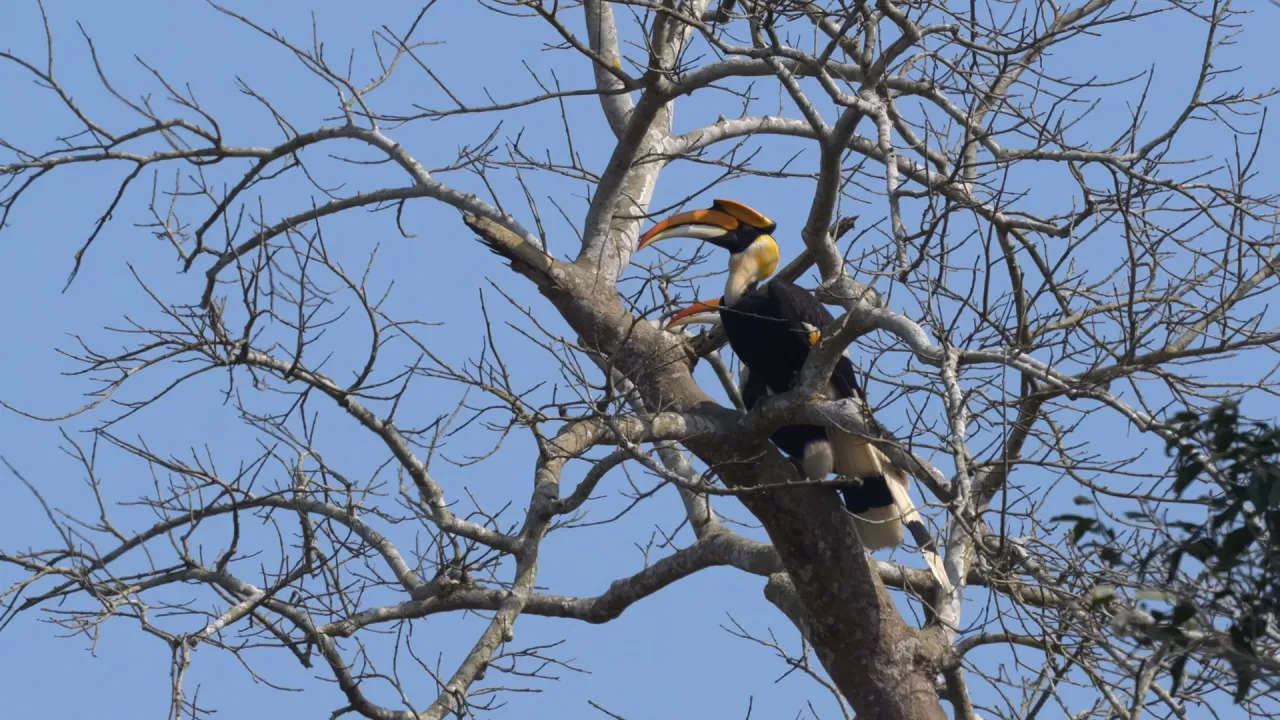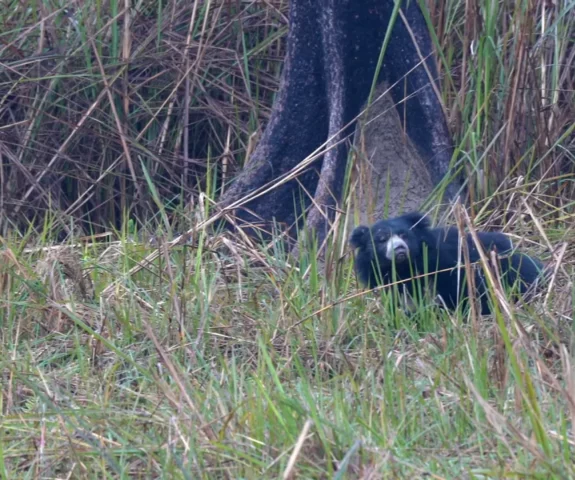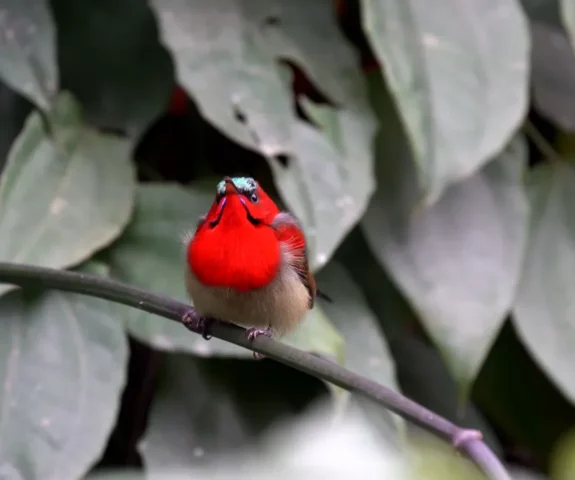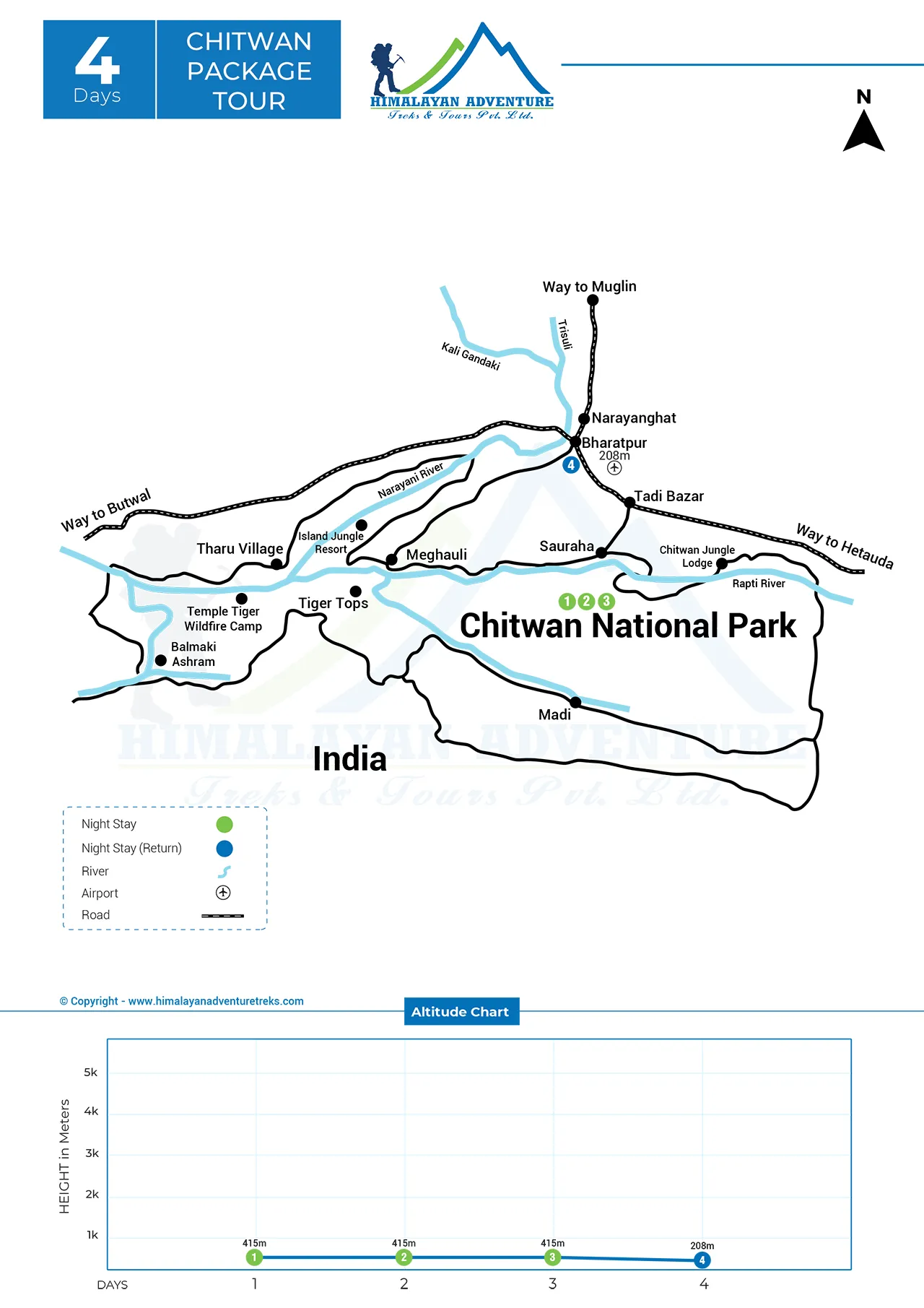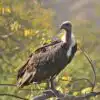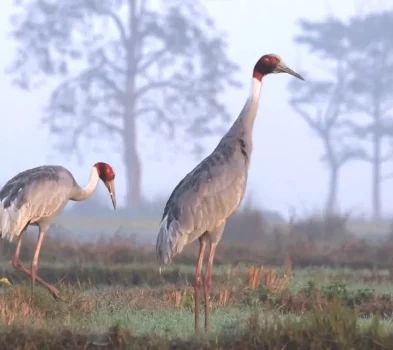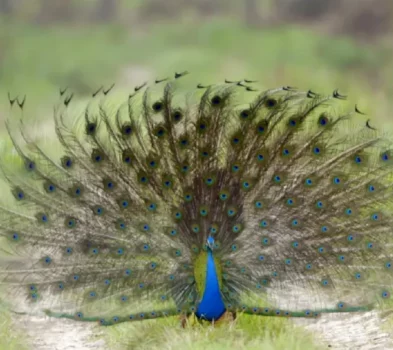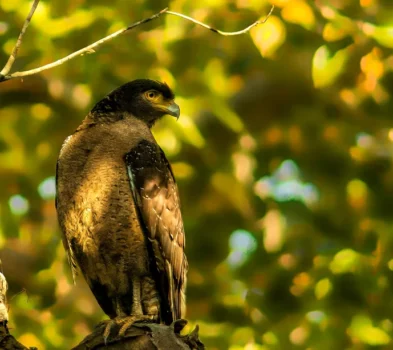Duration
4 Days
Chitwan Tour Package – 3 Nights 4 Days
Trip Grade
EasyGroup Size
1-16 PeopleMax Altitude
415m. / 1,362ft.Best Season
Feb- May/ Sept- NovActivity
Jungle AdventureMeals
Breakfast, Lunch & DinnerAccommodation
ResortTransportation
Tourist BusTrip Customization
On request (click here)Highlights of Chitwan Tour Package – 3 Nights 4 Days
- Wildlife viewing in Chitwan National Park in an open-jeep safari.
- Encounter with one-horned rhinos through an elephant-back safari.
- Canoeing on the Rapti River to view crocodiles and birds.
- Jungle hiking to discover various flora and fauna.
- Tharu village sightseeing and a traditional cultural dance show.
- Touring the Elephant Breeding Center and Gharial Crocodile Breeding Center.
- Picturesque sunset on the Rapti River.
Trip Introduction
The 4-day Chitwan Package Tour is an unforgettable experience that will bring you into the very core of one of the most popular wildlife reserves of Nepal, the Chitwan National Park.
It is a UNESCO World Heritage Site located in the fertile lowland Terai area of southern Nepal, one of the best-preserved places in Asia, where one can find a variety of wildlife, rich ecosystems, and colourful indigenous culture during a trip.
This tour is meant to be specialised for the traveller who wants to explore Nepal not only with the mountains but also with the jungles of Nepal, its serene rivers, and rural lifestyles in the villages, and Himalayan Adventure Treks presents you the Chitwan Tour Package in its best form.
Chitwan National Park has an impressive diversity of flora and fauna, with species such as the endangered one-horned rhinoceros, elusive Royal Bengal tiger, Asian elephant, sloth bear, gharial, and marsh crocodile, and over 500 species of birds.
In the Chitwan Tour Package, you will experience the various activities that are well arranged and include open-jeep jungle safaris, canoeing along the river Rapti, guided jungle walks, and encounters with the elephants.
The various activities provide unique views of the ecosystem of the park, and you are able to see the animals in their natural environment and learn about conservation and biodiversity through the knowledge of the experienced naturalist guides. The Chitwan Tour Package is comfortable and relaxing in nature and will be suitable for both family members, couples, individual travellers, and seniors as well.
Chitwan is located at an elevation of about 100 to 415 metres, unlike high-altitude trekking paths, where altitude sickness is a possibility. The climate is warm and subtropical, the walking distances are not much, and the speed of the itinerary is not high, which allows you to experience every single moment the way you want, without having to physically strain.
The Chitwan tour package will also expose you to the special culture of the Tharu community, the native population of the Terai, and other wildlife. You will also visit the traditional village of Tharu, where you can see the day-to-day life of the village as well as the colourful cultural dances in the evenings.
The tour is very satisfying in the way it gives a complete jungle experience with a comfortable stay in one of the comfortable resorts of Nepal, hospitality in the comfort of Nepal, good food, and perfect logistics.
The Chitwan Tour Package is a fantasy vacation, a comprehensive journey to nature, wildlife, culture, and a peaceful vacation. Whether it is an independent adventure or an addition to the Himalayan adventure, it is the experience of a lifetime.
Outline Itinerary of Chitwan Tour Package – 3 Nights 4 Days
Day 01: Arrival at Chitwan and Tharu Village Walk
Day 02: Canoeing, Jungle Walk, and Jeep Safari
Day 03: Elephant Safari and Elephant Bathing
Day 04: Last Morning in Chitwan and Departure
Our guests sharing their experiences (Photo/Video Gallery)
Detail itinerary of Chitwan Tour Package – 3 Nights 4 Days
Day 01: Arrival at Chitwan and Tharu Village Walk
The Chitwan Tour Package will start with a scenic morning drive from Kathmandu, which takes about 160 kilometres in approximately 5-6 hours, or a scenic morning drive from Pokhara, which covers about 4-5 hours.
The path passes through terraced hilly areas, small towns, and fertile river valleys, providing you with an overview of the Nepalese countryside in the process.
When you reach your safari resort near Chitwan National Park, the staff welcomes you with a cool welcome drink and assists with the check-in.
Once you get settled, have a good lunch at a restaurant of the resort which serves a combination of Nepali and international food.
Towards the end of the afternoon, go out with your guide on a walk through the Tharu village.
Explore and visit some of the typical mud-and-thatch houses, learn about local agriculture, and encounter people who can tell them something about their society and living conditions.
Move on to an elephant stable to observe these gigantic creatures at close quarters and know more about how they were taken care of and the conservation efforts in Chitwan.
It is also advisable to go to the Rapti riverbanks and have a breathtaking view as the sun sets, where you may spot rhinos or crocodiles resting along the riverbanks.
Go back to the resort to enjoy a wonderful dinner and then a Tharu cultural show. You can see the stick dance, peacock dance, and traditional drum performances, and you can also try these dances.
This interactive cultural tour is one of the most memorable experiences of experiencing the local culture.

Activity: Pickup & Activities, 4-5 hours

Max. Altitude: 410m/1,345ft. Chitwan National Park

Meal: Lunch & Dinner

Accommodation: Resort
Day 02: Canoeing, Jungle Walk, and Jeep Safari
The first meal on your second day on this Chitwan Tour Package is to begin by waking up to nature and relishing a big breakfast at your resort.
Have a peaceful canoe ride along the Rapti River, which would take approximately 1.5 hours.
Sailing quietly in a time-honoured dugout canoe, you will see marsh muggers, crocodiles, and the rare gharial crocodiles basking on sandbanks or swimming in the river, and you will see varieties of waterbirds, kingfishers, egrets, and storks.
Peafowl and hornbills can be spotted in the banks’ trees, and they make unbelievable photo shoots.
Then have a 2-hour guided jungle walk to the subtropical forest of the park. Your guide, who is also a naturalist, will show you the tracks of animals and plants.
Your guide will help you spot deer, wild boar, and langur monkeys from a safe distance.
The stroll ends with a visit to the Elephant Breeding Centre, where you will be able to see the elephant calves with their mothers and get to know more about conservation activities.
Have lunch and some rest back in the resort, and then do a 3-hour round-trip jeep safari.
Visit grasslands, Sal forests, and riverine jungles in an open-top 4×4 car, and you are likely to see rhinos, deer, monkeys, wild boars, whereas elusive tigers or leopards are rare.
Visit the Gharial Crocodile Breeding Centre and view endangered gharials of all ages.
The day is completed with dinner at the resort.
This is a complete day adventure, consisting of activities that last about 6-7 hours and which take place at an elevation of around 100-415m above sea level.
Overnight will be at a comfortable safari resort, including all the meals – breakfast, lunch, and dinner.

Activity: Jungle Activities, 6-7 hours

Max. Altitude: 410m/1,345ft. Chitwan National Park

Meal: Breakfast, Lunch & Dinner

Accommodation: Resort
Day 03: Elephant Safari and Elephant Bathing
The morning of the third day of your Chitwan Tour Package starts with the most popular safari, the elephant-back rides.
Get onto a soft cushion mounted on a trained elephant, with a professional mahout. This is a high-rise adventure that is a traditional means of exploring the jungle safely and quietly.
During the 1.5- to 2-hour safari, you can see one-horned rhinos grazing in the grasslands, deer racing in the grasslands, and langur monkeys resting in the trees.
The elephants are also able to explore places that are not reachable by the vehicles, giving an opportunity to peep at the elusive wildlife, like sloth bears or other wildlife.
Royal Bengal tiger sightseeing is rare. Early afternoon, take part in an optional bathing of the elephants at the Rapti River.
You can also ride or scrub the elephants, play around with trunk showers, and take memorable photos with mahouts under staff supervision, following safety instructions.
Have lunch and spend the afternoon or the early part of the afternoon at leisure. You can relax in the garden, read a book, or visit the nearby Sauraha bazaar to learn about the local handicrafts and Tharu souvenirs.
Your last evening meal in Chitwan will be the last time you and your guide will cherish the memories of the adventure that you had that day.
This entire day should provide about 3-4 hours of planned activities; it is at an altitude of 415 metres above sea level, and it involves all the meals – breakfast, lunch, and dinner.

Activity: Jungle Safari, 6-7 hours

Max. Altitude: 410m/1,345ft. Chitwan National Park

Meal: Breakfast, Lunch & Dinner

Accommodation: Resort
Day 04: Last Morning in Chitwan and Departure
Get up early to spend your last day in Chitwan, have breakfast in the resort, and hear the birds and the rustling of the leaves in the jungle.
Pack and check out, after which you can say goodbye to the hospitable staff at the resort who have made your stay at the resort so comfortable and memorable.
A car will take you to the bus stop in Sauraha, where you will continue your journey.
You will ride a comfortable tourist bus on the scenic ride back to Kathmandu, which will take 5-6 hours and is about 160 kilometres, or ride to Pokhara, which will take about 4-5 hours.
It passes along the Trishuli and Narayani Rivers and provides amazing scenery of river valleys, terraced agricultural fields, and small Nepalese towns.
On the way, compare your experiences in the Chitwan Tour Package – the wonderful moments of coming close to one-horned rhinos and elephants, the colourful cultural shows, and the sunset on the river. Have a break and stop to have a drink in between.
Once you get to Kathmandu or Pokhara, your Chitwan tour package is over, and you have numerous memories of fondness, a collection of wildlife photographs, and stories to tell.

Activity: Drop, 15 min

Max. Altitude: 410m/1,345ft. Sauraha

Meal: Breakfast
Note:
If you have your own private group and want to make your trip private, we can run the custom trip all the day as per your requirements and group size.
Includes and Excludes
What are included with package?
- Three Nights 3-star Resort in Chitwan: Accommodation for three nights at a 3-star resort in Chitwan is included. You will be staying in a comfortable hotel, providing you with the necessary amenities.
- All Meals: The package includes all meals during your stay, covering three breakfasts, three lunches, and three dinners. You’ll be able to enjoy a variety of meals throughout the day.
- All Entrance and National Park Fees: All the required fees to enter the Chitwan National Park and other sightseeing areas are included in the package.
- Crocodile Breeding Center Ticket: The ticket for visiting the Crocodile Breeding Center is included, where you’ll learn about the conservation efforts for crocodiles in the region.
- All Activities as Mentioned: This includes all the activities planned as part of your itinerary, such as jungle safaris, canoe rides, and other experiences mentioned in the tour.
- Both-Way Tourist Bus Tickets: The cost for both-way transportation by tourist bus from your starting point to Chitwan and back is included in the package. (Kathmandu- Chitwan- Pokhara- Bhairawa only)
- Pickup & Drop from Sauraha Bus Stop: You will be picked up and dropped off at the Sauraha bus stop, ensuring smooth transportation to and from your hotel.
What are not included with package?
- Flights to/from Bharatpur: The cost of flights to and from Bharatpur (the nearest airport to Chitwan) is not included. You would need to arrange and pay for these flights separately.
- Private Transportation to Chitwan National Park: While the package does not include private transportation to Chitwan National Park, it can be booked separately through the provider for an additional fee, if desired.
- Personal Insurance of Any Kind: Personal insurance, such as travel, health, accident, or evacuation insurance, is not included in the package. It’s recommended that you arrange your own insurance before the trip.
- Personal Consumption of Alcohol and Beverages: Any personal consumption of alcoholic beverages or other drinks outside the meals provided is not included. This would be at your own expense.
Pick Your Suitable Date
Book a Private Trip
Private & Group Discount Price
-
1 -
1 person
US$ 300
-
2 -
2 people
US$ 290
-
3 -
5 people
US$ 280
-
6 -
10 people
US$ 270
-
11 + people
9999
US$ 260
Total Cost:
US$ 300
Route Map & Altitude Chart
Kathmandu
Start/End point
Kathmandu
Trip Information
Best Time
Chitwan has a subtropical climate, and the weather is a key factor when planning your Chitwan Tour Package. The most comfortable and popular time is between October and March, late autumn, winter, and early spring. These are dry and pleasant months with daytime temperatures of 20-28°C and cool nights.
The dry season (Oct–Mar) is ideal for viewing wildlife because vegetation is thinner and visibility is higher, so it is easy to spot wildlife. It can also be used in jungle trips, canoeing, and bird watching.
Photography works best on clear days, as there are rhinos, elephants, and the scenery at Chitwan is naturally beautiful, though it may be harder to see during the monsoon period of June to September.
In April–May and early June, days can be exceedingly hot with temperatures reaching up to 30 °C, sometimes reaching the mid-to-high 30s°C in the jungle, thus the early mornings and late afternoons are also good times to see wildlife. Muddy trails and rising rivers may restrict safari activities, but the flora is lush, insects are numerous, and birdwatching remains worthwhile.
For any Chitwan Tour Package, dress appropriately: light cotton clothes in summer, a light jacket during winter mornings, and rainwear in case of showers.
Foods and Drinks
All major meals are included. Breakfasts at the resort are substantial, including eggs, toast, cereal or porridge, fresh fruit, and tea or coffee. Lunch and dinner offer a variety of Nepali and international foods.
Common meals include traditional dal bhat—rice, lentil soup, vegetables, and sometimes meat curry—along with other dishes like stir-fried vegetables, noodles, soups, salads, and regional specialities such as river fish or Tharu-style chicken curry.
Only treated/filtered/boiled water is safe. Mineral water is available in bottles, and using a reusable bottle is recommended. Resort bars carry soft drinks and beer, which are a treat after a hot safari day. Nepali desserts like gulab jamun or local honey yoghurt are worth trying.
Vegetarian, vegan, gluten-free, or mild-spice meals may be pre-ordered. Overall, the Chitwan Tour Package food is healthy, delicious, and balanced, keeping you energised throughout the journey.
Visa and Permits
Travellers visiting the Chitwan Tour Package must be well informed about the visa and permit requirements so that they can travel easily. The majority of foreigners have to possess a tourist visa to visit Nepal, whereas Indian nationals do not. Visa is available at the points of entry, like Kathmandu Airport, Tribhuvan International Airport, or at the borders.
Fees also depend on the term: about 30 USD per 15 days, 50 USD per 30 days, and 125 USD per 90 days, and can be paid in cash. Complete a form at the counter or digitally, pay the fee, and get a multiple-entry visa. Bring a photo the size of a passport and make sure your passport is not even out of date.
To enter Chitwan National Park, you will need a permit, which we, the Himalyan Adventure Treks, will secure on your behalf and form part of the package. The charge per day that the foreigners pay is an average of NPR 2,000 (approximately 16 USD), which involves various activities, including the Elephant Breeding Centre and Gharial Crocodile Breeding Centre. There might be small fees at museums or cultural exhibitions.
Having all the visas and park permits, you can relax and enjoy all the wildlife, jungle safaris, and cultural experiences without any stress.
Altitude Sickness, Health, and Safety
Safety and health are the concerns in the Chitwan Tour Package. All activities like jeep safaris, elephant rides, canoeing, and jungle walks are accompanied by trained guides, who ensure safety in addition to providing information on the park and wildlife.
Be guided, keep up with the guides, and observe a safe distance between animals such as rhinos, deer, and even monkeys. Before every activity, there is a safety briefing so that you are ready to meet larger animals, but not in the highland Terai areas in Chitwan, because it is at an altitude of 100-415 m, hence you are not subject to altitude sickness.
During the winter season, cold and humidity might pose a problem; therefore, dress in breathable attire, utilize sun protection, and drink plenty of water.
Hot seasons have insects, e.g., mosquitoes, and rainy seasons might have leeches. Wear repellents, full-sleeved clothing, and sneakers. Most resorts provide drinkable water and simple first-aid, but facilities like providing mosquito nets depend on the resort. There are also clinics and hospitals in Sauraha and Bharatpur in crisis.
These steps will guarantee that your Chitwan Tour Package is an interesting and secure adventure that will see you comfortably, hydrated, and alert, being able to enjoy wildlife, jungles, and even cultural activities and events.
Transportation
Transport is also provided for easy travel in and around Chitwan. In our Chitwan Tour Package, the tourist bus will be used to travel between Kathmandu (5-6 hours) or Pokhara (4-5 hours) with resting stops in between on beautiful roads down to the Terai plains, through rivers, fields, and small towns, but traffic/road conditions can change travel duration.
There are options of private cars or jeeps, which can be used to transfer at a faster rate. Bharatpur to Kathmandu is a short flight of around 20-30 minutes. On arrival at Sauraha, a private pickup transport is ordered at the resort.
During the tour, transport varies by activity: open-top 4×4 jeeps for jungle safaris, traditional wooden canoes for river rides, and elephant-back safaris for unique park views.
Walking, bicycles, or rickshaws can be used to explore the village and jungle. Outbound transport is also arranged via tourist bus, private vehicle, or flight.
Luggage transport is simple, with adequate space provided. With these arrangements, your Chitwan Tour Package ensures a comfortable journey so you can focus on wildlife spotting, cultural tourism, and the adventure of Terai.
Additional Costs of Travel
The traveller should budget for other additional costs, although the majority are covered in a Chitwan Tour Package. Out-of-meal drinks and beverages like soft drinks, bottled water, beer, wine, or cocktails are normally optional.
Between meals, snacks such as chocolates, chips, and ice cream may be bought in the town of Sauraha or at the resort bar. Good service is met with tips and gifts, and guides, drivers, and hotel personnel tend to get little tips.
On a Chitwan Tour Package, it is normal to tip off the main nature guide at an average of NPR 1000-1500 (USD 8-12) and the elephant mahouts or hotel staff at a lower rate.
Other costs are souvenirs and shopping. The spices, teas, t-shirts, postcards, wood carvings, local handicrafts, and Tharu artwork will be good fits as lasting reminders.
You will also have an option to do activities that are not included in the package and do them on your own, like a second canoe ride, a tour of the ox-cart village, or a private jeep safari, which has an added fee. The other minor expenses will be the laundry, Wi-Fi or SIM cards, and meals that you will take during the transit to and from Chitwan.
Generally, spending USD 50-100 on additional personal expenses will be enough to have a nice 4 days in the Chitwan Tour Package. You will be able to have drinks, souvenirs, tips, and things you want without worrying, but the primary part, like safaris, accommodation, and food, will be included.
Language & Communication
Language and communication are easy and traveller-friendly during a Chitwan Tour Package. The Nepali language is the official language in Nepal, and in the Chitwan region, Tharu, which is an indigenous language, is widely spoken. The guides, staff, and drivers of the resorts speak English, and you find it easy to comprehend the instructions, wildlife briefs, and details of an activity.
Sauraha menus and signs are frequently in English, and thus, everyday communication is easy. Because Tharu people do not often use English, a small number of local expressions, such as ‘Namaste’ when saying goodbye or hello, and ‘Dhanyabaad’ when saying thank you, will be a nice addition to your communication with Tharu people and locals.
Gadget, Internet, and Connectivity
The Chitwan Tour Package has good connectivity, but it depends on the location. Most resorts offer Wi-Fi in the lobbies, restaurants, and rooms, which is usually free and allows sending messages, emails, and exchanging photos.
Mobile networks (NTC/Ncell) are also available in the Sauraha town, but when conducting a safari, the signal can be weak in all parts of the park, which will allow you to enjoy nature to the fullest. Carry a local SIM or check roaming where necessary.
Power is 220 V and has the European-type socket. Generators or solar backup are in most hotels. Bring in an adapter and a power bank so that you are not out of charge on the long safari days.
Communication is easy on the whole, and you can keep in touch with your Chitwan Tour Package and, at the same time, enjoy the wildlife and the peaceful setting of the jungle at Chitwan.
Don’ts on This Trip
There are some “don’ts” that one should remember when visiting the Chitwan Tour Package to stay safe, not disrespect wildlife, and not destroy the environment.
- First, never disturb animals. Do not make loud noises, do not make sudden movements, and do not attempt to come close to the wildlife.
- Feeding animals is highly forbidden because it can be a risk to you and the animals. You should never disobey your guide when taking a safari or a jungle walk.
- Do not wander alone. Always walk with your group and guide when visiting any walks, safaris, or villages to prevent getting lost or getting into any type of wildlife.
- You should not litter either; always carry with you a small bag that you can use to put trash in, and discard it in the right way so that the Chitwan National Park can remain clean.
- There is a risk of smoking and open fire in the park; there is no smoking inside the National Park.
- Bright neon attire and heavy perfumes should be avoided when doing activities in the jungle, as they may scare animals.
- Do not touch wild animals, insects, or babies.
- Rivers such as the Rapti or Narayani are unsafe to swim in because of the presence of crocodiles and other water-related dangers.
- Appreciate local culture: only take pictures with the permission of the person, do not take shoes in the house or temple, and do not show public displays of affection in the street.
- Other tips: tip moderately, pack light when going on safari, and also, be reasonable when shopping. Through these few tips, your Chitwan Tour Package will be safe, enjoyable, and responsible, and you will only be left with memories and photographs.
Trip Extension
A lot of the travellers discover that they desire to see more of the landmarks and culture of Nepal after having been on a Chitwan tour package. One of the most favoured extensions is Pokhara, which is 4 to 5 hours away, and you can watch serene Phewa Lake and the beautiful sight of Annapurna and Machhapuchhre, and you can have paragliding, ultralight flights, etc.
The adventurous trekkers may begin their trekking activities in Pokhara, with short treks like Ghorepani Poon Hill or the Australian Camp, or long treks like Annapurna Base Camp to enjoy the spectacular views of the Himalayas.
To continue with the wildlife experience, Bardia National Park in western Nepal has remote wildlife safaris with better prospects of seeing tigers and elephants, and is approachable by air to Nepalgunj or by road.
Another cultural extension, an hour or two away, is Lumbini, the birthplace of the Lord Buddha, giving a peaceful spiritual experience. Whitewater rafting can also be used to divide their road back to Kathmandu by the Trisuli River.
In case of going back to Kathmandu, there are other hill stations like Nagarkot or Dhulikhel nearby that have the same sunrise and easy hikes as the village, whereas Kathmandu Valley has numerous UNESCO heritage places in the form of Durbar Squares, Boudhanath Stupa, and Pashupatinath Temple.
The organization of these extensions with your Chitwan Tour Package operator will lead to an easy trip to the jungle that will turn it into a more diverse, multi-dimensional experience in Nepal.
Key attractions and cultural events.
Your Chitwan tour package can be even more remarkable in terms of timing, as it can coincide with local festivals. In December, the Chitwan Elephant Festival is an event that involves races, beauty pageants, parades, and also Tharu cultural performances with the use of an elephant.
In January, known as Magh in the Nepali calendar, the Tharu New Year, stick dances, traditional foods, and family get-togethers are on display. Holi brings colourful festivities of colour throwing in the Terai in February or March.
Dashain and Tihar in October-November are celebrated throughout the country, and Teej in August-September displays the culture of women. It is symbolized by the local fairs or melas, where one gets the idea of handicrafts, animals, and farm shows.
The Chitwan Tour Package also sets the focus on the breathtaking wildlife of Nepal and natural beauty as well. Chitwan National Park is a Nepalese national park, which is a UNESCO World Heritage site; it is the place where one-horned rhinos, tigers, leopards, sloth bears, and over 500 species of birds may be found.
Rafting on the Rapti and Narayani rivers is a relaxing wildlife experience that includes gharial crocodiles and passing birds. Memorable are the elephant activities of watching the breeding facility, bathing, or riding, following ethical wildlife tourism practices.
By visiting Tharu villages, it is possible to enjoy traditional houses, crafts, and the colourful Stick Dance. Scenies like grasslands or Sal forests, or riverine areas have long stretches that are beautiful to capture photographs or meditate.
Other recreational facilities may also be optional, like the Bis Hajaar Tal wetlands or the vulture wetlands. The Chitwan tour package comprises wildlife, culture, and the beauty of nature, and hence the days spent on the package are quite incredible and experience-filled.
Frequently Asked Questions
What is the best time to visit Chitwan National Park?
Ideally, it is in the months of October-March when the weather is dry and pleasant. It is easier to see wildlife, and the conditions of the safari are optimum.
What is the best way to go to Chitwan, Kathmandu, or Pokhara?
By tourist bus (5-6 hours from Kathmandu, 4-5 hours from Pokhara), private car, or a short flight to Bharatpur Airport and then transfers to your resort.
Which wildlife will I see on the Chitwan tour?
You can expect to find one-horned rhinos, deer, monkeys, wild boars, elephants, crocodiles, and plenty of birds. The sight of Bengal tigers is uncommon and is luck-based.
Is the Chitwan Tour Package an adult and senior-friendly package?
Yes. The trip is secure and adventurous for all ages, and the guides ensure that there is safety for everyone during the activities.
Am I supposed to take precautions against malaria or vaccinations?
Chitwan has a low risk of malaria. You can apply insect repellent to protect yourself from insect bites. Make sure that such common vaccinations as typhoid and tetanus are up to date.
Am I allowed to shoot pictures, shoot videos, or utilise drones?
During safaris and in resorts, photography and videography are permitted but must not disturb the wildlife. Flash photography around the animals should be reduced.
The use of drones in the Chitwan National Park is prohibited at all costs, as the drone disturbs wildlife.
The park areas cannot receive drone permits; however, it might be possible to use the drone outside the park and have local permission.
Will we have an English-speaking guide?
Yes. Every Chitwan tour package has English-speaking guides/naturalists, who serve to describe the wildlife, culture, and activities.
Are meals provided, and is it possible to cater to dietary requirements?
Yes. It has all the meals, including Nepali and international meals. There are vegetarian and vegan choices, but only on request.
Is there access to the internet or mobile access?
In the majority of resorts, there is Wi-Fi and mobile networks in Sauraha, and the surrounding locations are covered. The signal can be poor deep into the jungle.
Do I need travel insurance?
Insurance is not necessarily obligatory, but it is extremely recommended in cases of medical emergencies, cancellation of the trip, or infrequent evacuations.
Am I able to trespass through the park?
No. The activities in the jungles should be carried out with licensed guides to ensure that you are safe and to conserve the wildlife.
Additional hints: always bring cash to tip, get a souvenir or a little purchase, and do not ignore the guides so they can make the most of your Chitwan Tour Package.

